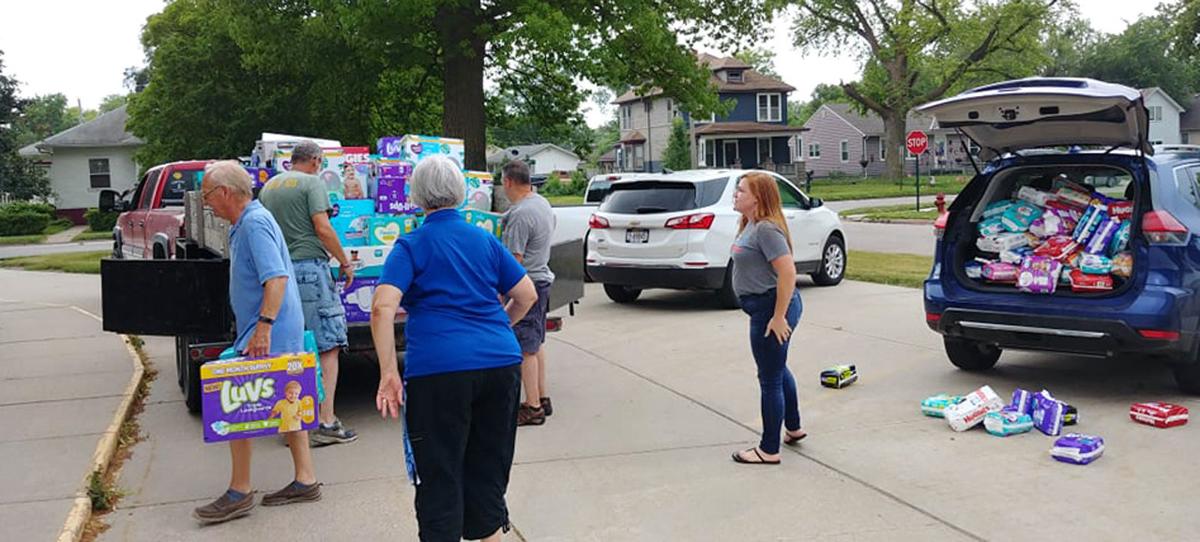
We must admit that at first glance a bill in the Colorado Assembly to provide funding for diapers due to COVID-19 impacts sounded, well, a little odd.
The bill would provide $4 million over two years to provide diapers for families in need.
Odd though it may seem, once you look into the diaper deficit, the bill makes sense.
Parents who have lost their jobs or had their working hours reduced are struggling to make ends meet, to pay rent and utilities, to buy food for their families – and to keep their babies and toddlers safely diapered. Unless you’re in that phase of parenthood, it’s not something that comes readily to mind when considering the financial impacts of COVID-19 on families.
But if you are a parent, especially a parent in trouble financially, trust us – it’s at the top of the list.
While some low-income families may have access to food stamps (the federal Supplemental Nutrition Assistance Program) and the Women, Infants and Children program, diapers cannot be purchased through either program.
And let’s face it – diapers are not optional.
“It’s not a luxury, it’s not an add-on, it’s fundamental to provide diapers for your family,” said Anna Ramirez Crawford, executive director of Women’s Lobby of Colorado, an advocacy group supporting the bill.
The average cost of diapering a child is $80 a month, provided parents can go to large retailers to make diaper purchases. A family without transportation may have to buy them from convenience stores, making them even more expensive. A family with two or more children in diapers faces an even bigger expense.
If working parents are lucky enough to have care for their little ones, they must provide a day’s supply of diapers when dropping off their children to day cares or pre-schools, or the children are not allowed to attend, causing another cascade of problems.
The nation’s network of nonprofit “diaper banks” has seen huge increases in requests for diapers from families during the last year.
According to the National Diaper Bank Network, the need for diapers has increased 300% since the advent of COVID. In Denver, WeeCycle, a nonprofit that distributes free diapers along with recycled baby essentials had planned to hand out 300,000 diapers in 2020. Instead, the organization gave families in need 1.1 million diapers.
The Federal Emergency Management Agency anticipated the problem and distributed large numbers of diapers throughout the country last spring. In Southwest Colorado, 12 pallets of diapers were delivered to La Plata County Family Resource Center, which distributed them through its own network.
A FEMA spokesperson said no further distributions of diapers are planned.
In Cortez, the Pińon Project Family Resource Center distributes diapers on a regular basis, some purchased by the agency and some donated. Executive Director Kellie Willis said she thinks the need for diapers in rural Montezuma County is even greater now than last year, because families have exhausted all resources.
The proposed bill would pay for 26 million diapers to be distributed through existing Colorado nonprofits that already provide diapers to families.
State Senators Brittany Petterson and Jessie Danielson and Representatives Kerry Tipper and Serena Gonzales-Gutierrez are sponsors of the bill.
Keeping a child clean is not just a health issue, but also a matter of dignity for parents, especially for mothers, who are most often the primary caregivers of young children.
The legislature should pass this measure, though perhaps only a year’s worth of funding is appropriate. In 2022, if the need continues apace, the assembly could again fund it.
Let’s keep Colorado’s kids clean, healthy and happy.
February 18, 2021 at 07:33PM
https://ift.tt/2OHfhsu
Our View: Assembly should pass diaper relief bill - The Durango Herald
https://ift.tt/2Comt7j
Diapers

No comments:
Post a Comment